Day Two – 16th November
9 – 9:30 am – Doors Open, Light Refreshments Available
9:30 – 9:40am – Opening Words from Kim Tully, CEO Engaging Dementia, on Plenary Stage
PLENARY STAGE PARALLEL STAGE
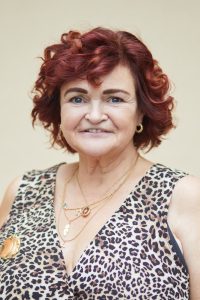
Marguerite Keating – Marguerite is a member of the Irish Dementia Working Group supported by The Alzheimer Society of Ireland and a member of the European Working Group of People with Dementia.
Prof. Iva Jolmerová will provide an introduction to Alzheimer Europe, a European organisation linking Alzheimer societies in different European countries, its quarter of a century of activity and its efforts to improve the quality of life of people with dementia and their families in Europe. Thanks to the unique cooperation between Alzheimer Europe and the individual member organisations, many unique initiatives and projects have been created, and Alzheimer Europe is also involved in important scientific projects. They have been privileged and fortunate that it was Irish colleagues who have made a significant contribution to Alzheimer Europe, Maurice O’Connell was one of Iva’s predecessors as chairperson of Alzheimer Europe and Dr. Helen Rochford-Brennan was recently chair of the European Working Group on People with Dementia, and therefore she was a member of the Alzheimer Europe board.
Iva greatly values the contribution of people with dementia to the work of Alzheimer’s societies because they bring their own lived experience. That is why Alzheimer Europe places such an emphasis on public involvement not only in research projects. The situation of people with dementia is different in different European countries.
Iva would also like to introduce the audience to the situation of the countries that lie on the other side of our beautiful and diverse continent, not only the countries of Central and Eastern Europe that are part of the European Union, but also those that lie to the east of them, including Ukraine, where the situation for older people, carers and, of course, for people living with dementia (but also for everyone else) is extremely difficult.
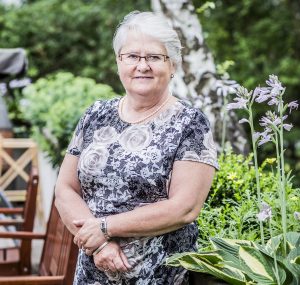
Prof. Iva Holmerová – MD, PhD, Assoc Prof. Centre of Gerontology Prague, Director and Consultant Physician, Immediate past chair of Alzheimer Europe, Founder of Czech Alzheimer Society
Light refreshments will be served

Prof. Kate Irving – Professor of Clinical Nursing, DCU
Kate has a significant leadership role Irish dementia policy development and successfully led the national Dementia training initiative: Dementia Skills Elevator, aiming to develop dementia skills capacity in services and communities. Kate has led several European research consortiums in dementia prevention and approaches to care and support.
Kate currently teaches the practice development module in Dementia and Ethics in Nursing on the under graduate curriculum.

Prof. Suzanne Timmons – Suzanne is a clinical geriatrician, Professor of Geriatric Medicine, and Programme Director for the MSc in Older Person Rehabilitation and MSc in Dementia programmes in University College Cork. She runs a Movement Disorder service for older people with complex PD. She was the Clinical Lead for dementia health services in Ireland from 2017-2021. She is current and previous PI on numerous national projects and co-investigator on several international projects on Parkinson’s disease, dementia, delirium, and antipsychotic prescribing. Current PD research projects include tailored exercise prescription, wireless monitoring, and mapping of national service needs. and performance.

Elaine McCaughley works as the Senior Project Manager for Human Rights and Equality Policy in the HSE National Office across a number of programmes, including the Assisted Decision-Making (Capacity) Act 2015, and the HSE National Consent Policy. Elaine has extensive clinical experience as a speech and language therapist, working with people with dementia in their own homes, in hospital and in residential care. Elaine holds an LLM in Healthcare Ethics and Law from the University of Manchester where she volunteered at the Dementia Legal Advice Clinic.
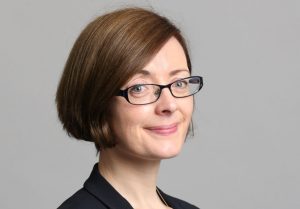
Áine Flynn, Director of the Decision Support Service at Mental Health Commission
Áine graduated from Trinity College Dublin with a law degree and M.Litt. by research. She was admitted as a solicitor in 1999 and from 2012-2017 was a senior partner in Dublin firm, KOD Lyons, specialising in public interest law. She was on the panel of legal representatives of the Mental Health Commission and the Mental Health (Criminal Law) Review Board from their inception in 2006 and represented wards of court instructed by the General Solicitor. Áine has written and lectured on human rights and holds a further qualification in quasi-judicial decision-making. Áine has been a member of the Human Rights Committee of the Law Society since 2012. Prior to her present appointment, she was a member of the Law Society’s Mental Health and Decision-Making Capacity Task Force. In October 2017, Áine commenced in post as the first Director of the Decision Support Service under the Assisted Decision-Making (Capacity) Act 2015.
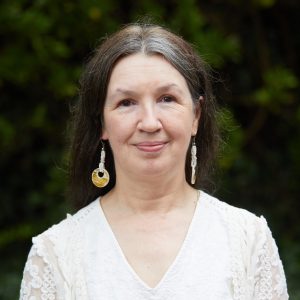
Susan Crampton – Family Carer and Supporter. Susan is a member of the DCCN. She was a supporter, carer and advocate for her late Mom, Anne, who lived with mixed vascular and Alzheimer’s dementia.

Kevin Quaid – Kevin was diagnosed with Lewy Body Dementia in 2017 aged 53, after being diagnosed firstly with Parkinsons. He is a member of the Irish Dementia Working Group as well as vice chair of the European Working Group of People with dementia and co-founder of Lewy Body Ireland. Kevin has written two books – “Lewy Body Dementia, Survival and Me” and “I am KEVIN not Lewy”.

Maria Dillon – Maria is a Solicitor with Horan & Son LLP Solicitors, Woodquay, Galway.
Maria has considerable experience in Health & Social Care law, including Wardship, and the law relating to Vulnerable Adults & Children. Previously, she acted as legal advisor to the Health Service Executive. Maria is a Chairperson of Mental Health Tribunals, a Member of the Law Society Mental Health and Capacity Task Force, and Chair of Solicitors for the Elderly.
A catered lunch with a selection of freshly made dishes will be provided.
Sex, gender and sexuality are fundamental aspects of people’s lives, which influence how we see ourselves, how others see us and our position in society. In recent years, there has been increasing awareness about sex, gender and sexuality and the many different gender identities and sexual orientations that people have. Unfortunately, there is still a lack of information on this topic in dementia care and this central part of our identity is far too often invisible in dementia care (or unnecessarily emphasized). Drawing on Alzheimer Europe’s recent work with experts in this domain, this presentation will explore some of the key issues which impact on the quality of life and the equal access to good quality care and support for all people with dementia, irrespective of the sex, gender identity or sexual orientation.

Dr. Dianne Gove – Dianne is Director for Projects at Alzheimer Europe and Honorary Visiting Research Fellow at the University of Bradford. Her background is in psychology, psychoanalysis and psychotherapy. Her Master’s in Education focused on gender and disability and her PhD was on the topic of general practitioners’ perceptions of dementia and how they relate to stigma. For the last ten years, she has also chaired Alzheimer Europe’s ethics working groups which in 2021 addressed the topic of sex, gender and sexuality in the context of dementia.
Dr. Hynes will discuss the research conducted aiming to identify the needs of older LGBTQIA+ adults in relation to dementia care provision
in Ireland, and to develop consensus-based recommendations for dementia-services caring for
LGBTQIA+ people with dementia.
Dementia cases in Ireland are set to increase to 100,000 by 2036. Similarly due to improving circumstances in acceptance for LGBTQIA+ people in Ireland, the number of adults openly expressing their identity in their later years is also rising. However, in Ireland there is little research that has examined the experiences of older LGBTQIA+
people with dementia and future needs of older LGBTQIA+ people in care. This may leave dementia care facilities without the understanding of what they can do to make sure services are providing person-centred care to LGBTQIA+ service users.
She will be presenting on behalf of Megan Oglesby who is in absentia.

Dr Sinéad Hynes – PhD, Lecturer in Occupational Therapy, University of Galway.

Megan Oglesby (in absentia) – MSc Applied Clinical Neuropsychology. Graduate member of PSI.
The Alzheimer Society of Ireland (ASI) supports almost 500,000 people affected by dementia annually. In January 2022, The Advocacy, Research and Public Affairs team undertook LGBTQIA+ awareness training. It is extremely important to have an awareness of the challenges faced experienced by our LGBTQIA+ family carers and people living with dementia.
We outline the steps we’ve taken over the last few months to both improve our understanding of these challenges and grow our own awareness. This involved setting up a working group, identifying tangible goals that we could achieve over the course of the next few months. This included developing best practices for each team.
This presentation will outline this process in full and share our learnings to the wider community to show that changing work practices can develop a culture of inclusion and diversity.

Dr. Diane O’Doherty – Research Officer at The Alzheimer Society of Ireland

Niamh Burke – Masters in Journalism, Communications Officer at The Alzheimer Society of Ireland
Light refreshments will be provided
Dr. Benedicte Sørensen Strøm will be discussing her PhD studies which centred around the experience of bringing the Sonas Programme to Norway.
The Sonas Programme is Ireland’s leading therapeutic activity for people with dementia. There are now more than 450+ Sonas Licensed Practitioners in Ireland with Sonas Sessions being carried out in an estimated one half of nursing homes nationwide.
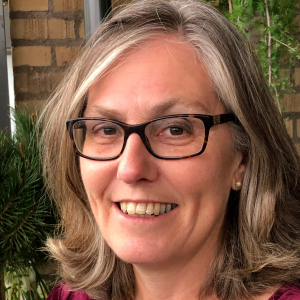
Dr. Benedicte Sørensen Strøm – PhD in Dementia.
Senior advisor at Diakonhjemmet Care, Oslo, Norway
The Dementia Model of Care sets out to develop care pathways within the health and social care system for people living with dementia, ranging from the identification of symptoms through to assessment, diagnosis, communicating a diagnosis of dementia and post-diagnostic support.

Matthew Gibb – Matthew has a professional background in Social Work practice and holds a Masters degree in Social Policy and Social Work Studies from the London School of Economics. He has extensive experience working with older people, people living with dementia, caregivers and people with sensory and physical disabilities.
Matthew is currently the Director of the Dementia Services Information and Development Centre, a national centre based in Dublin that is committed to promoting best practice in all aspects of dementia care through research, education and information provision.
Founded in 2014, The Forget Me Nots Choir is a Dublin NorthEast Quality Arts Project for seniors with a special welcome for families impacted by dementia and is now a registered charity in Ireland. It has >150 members: people with different types of memory loss conditions, their carers, local seniors and enthusiastic volunteers who make it all possible. The choir performs regularly in a range of venues from nursing homes to grand concert halls to cathedrals, and has made recordings with well-known Irish musicians and local schoolchildren.

Our Musical Director, Norah Walsh and Piano Accompanist, Emmet O’Connor are paid professionals, with all other support provided by our volunteers. During the pandemic we kept the choir going by meeting twice weekly over zoom with up to 80 participants online. This special choir touches the heartstrings of Ireland and gives us all a lift!
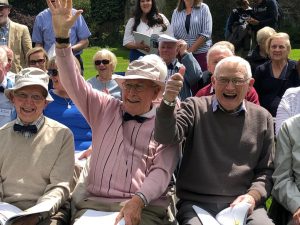

Kim Tully – Kim joined Engaging Dementia as CEO in late 2020. She has over 20+ years of experience in diverse roles for a renowned global organisation, and enjoys working in the community and voluntary sector. Kim has a Master’s Degree in International Business from the University of South Carolina, USA.
Freedom from restraint is protected under Articles 14 & 15 of the UN Convention on Rights of Persons with Disabilities. In Residential Care falls management traditionally involves some restrictive practices. People with dementia are more adversely affected by restrictive practices. An extensive review of non-pharmacological restrictive practices in the Organisation was undertaken. This included One to One supervision, use of bedrails, Exit Alarm mats and Electronic Monitoring bracelets. Majority of bedrails were replaced with Safety Wedges and Ultra Low beds. Review of restraint interventions showed no clear link to prevention of falls or injuries as a result of restraint. Contrary there was evidence of breach of dignity and privacy for the residents. Based on the review, bedrail use was reduced radically between 2016 and 2021 by 79% (42 – 9). Falls rate remained consistent approximately 3.6 – 3.2 per 1,000 Occupied Bed Days. Exit Alarm mats, Electronic Monitoring bracelets and One to One supervision were replaced with direct observation and two hourly anticipation of needs. Cost saving on One to One estimated to have been €25,000 in 2016 alone. We successfully reduced restrictive practices with no compromise to resident safety, thus respecting the Human Right to liberty.

Florence Horsman Hogan – RSCN /RGN / FFNMRCSI. MSc Nursing (Advanced Leadership). MSc (hons) Healthcare Ethics and Law. Quality and Patient Safety Manager Leopardstown Park Hospital
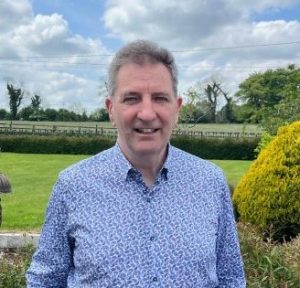
Adrian Ahern – RPN RGN BSc Econ (hons) MA Healthcare Management. Director of Nursing Leopardstown Park Hospital
Light refreshments will be provided
Specialised dementia education programs have begun to emerge in recent years. However, a lack of consistency and adequate level of dementia knowledge make it difficult to anticipate treatment needs across Europe. Self-experience practices may help to educate and equip professionals with the competencies and level of understanding needed in the provision of person-centred dementia care. Evidence indicates that self-experience practices can enhance empathy and understanding among professionals and informal caregivers.
In this European study, various methodological approaches were employed, including a scoping review, a focus group study, a series of co-design workshops, and pilot training events with the dementia simulation toolkit and ICT platform. This study was a mixed-methods design, incorporating both quantitative and qualitative data from key dementia stakeholders (i.e., people with dementia, informal caregivers, and health and social care professionals).
The results of this study have shaped the co-design and co-development of the INTenSE training materials, comprising simulation tools, training scenarios, facilitator guides, and key recommendations for implementation. Our findings hold promise for enhancing levels of understanding and knowledge of person-centred dementia care among professionals. Learning through self-experience, therefore, appears to be a particularly effective approach in the context of dementia education and training.
Presenters:

Kealan Forristal* – BSc., MSc.
Research Assistant at Dublin City University/Dementia Navigator at Camden & Islington NHS Foundation Trust
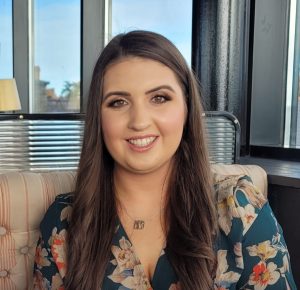
Rebecca Collins* – BSc., MSc.
Research Assistant at Dublin City University
*These two authors contributed equally to this work
Additional Contributors:
Ben Rudden. BSc. in Psychology final year student at Dublin City University
Jessica Lynch. BSc. in Psychology final year student at Dublin City University
Dr Louise Hopper. BSc., PhD. Assistant Professor at Dublin City University
Tover will be presenting on their methods of co-designing and research.
“At Tover, we develop for and with our target groups. We are convinced that our products can only truly meet the needs and requirements of our target groups if they play an important role in our development process. Therefore, all Tovertafel games are developed in co-design: in close cooperation with care professionals and the people with dementia. In this presentation, Marije Seinen from Tover will tell more about the co-design and research processes at Tover and the importance of involving people with dementia in the design process.”

Marije Seinen – User-Centred Designer Senior.
Marije Seinen is a user-centered designer for seniors with dementia at Tover, a healthcare technology company working to create a more caring and inclusive world for people living with cognitive challenges, including dementia. The company’s Tovertafel (“magic table” in English) uses interactive light projections to stimulate physical and cognitive activity and social interaction.
‘Round the house and mind the dresser’ combines a short presentation with an interactive movement workshop in adaptive Irish céilí (group) dance. Céilí dance refers to vernacular (or folk) Irish couple, circle or line dances which are generally performed with a partner (or partners) in a social and recreational context. Adaptive céilí dance takes account of participants mobility and cognitive abilities so they can participate. Despite the evidence of psychosocial benefits for people living with dementia and their carers participating in adaptive céilí, anecdotal evidence suggests that many consider they lack the movement skills or dance repertoire to do so. As a first step towards demystifying the dance form, this presentation/workshop will use a single Irish céilí dance, namely ‘Shoe the Donkey’; demonstrate some key adaptations to it in terms of dance formation, movement patterns, footwork and partnering holds; and invite those in attendance to participate with us in the dance using any/all adaptations which best suit their individual needs. All are welcome to take part and no previous experience in any form of Irish dance is needed.

Ms. Carmel McKenna – M.A. in Ethnochoreology TCRG (certified Irish dance teacher)
Principal & Creative Director, Munster Academy of Dance and Graduate Studies Support, TUS
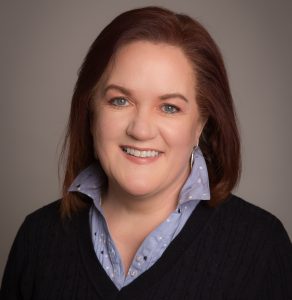
Ms. Jennifer Moran Stritch – M.A. in Social Work, CT (Certified Thanatologist), ADEC.
Lecturer, Department of Applied Social Sciences, TUS
Principal Investigator – Loss and Grief Research Group/Social Sciences ConneXions at TUS
A catered lunch with a selection of freshly made dishes will be provided.
There is designated space to eat, relax and network.
People with an Intellectual Disability (ID) are at greater risk of developing dementia than the general population. Despite very high risk, services are ill-prepared to provide post-diagnostic support to people with ID and dementia and their carers, resulting in unequal and inadequate access for people with ID and dementia to post-diagnostic supports.
This presentation is part of a larger project to develop accessible and usable best practice guidelines for post-diagnostic dementia supports for people with an intellectual disability. The focus of this aspect of the project was to identify the key elements of post diagnostic support from the perspective of those with experience in providing post-diagnostic supports to people with an intellectual disability.
Semi-structured research interviews were conducted with twenty participants and were analysed using reflexive thematic analysis. Themes included: Foundational concepts underpinning supports (e.g., enabling empowerment and inclusivity), pre-requisite components of post-diagnostic support (e.g., knowledge of the individual with dementia and changes over time, care pathways), infrastructure and personnel components of support (e.g., integrated organisation and structure), process components of support (e.g., meaningful engagement and psychosocial interventions), and factors impacting on support (e.g., resourcing, current policy landscape). Results from this study will help to inform the final guidelines.

Dr Andrew Allen – PhD, Research Fellow, Trinity Centre for Ageing and Intellectual Disability, Trinity College Dublin
The prevalence of dementia in Ireland is predicted to rise significantly as the
general population ages. Several dementia organisations have encouraged human rights-based
approached to dementia care, and recent literature has supported the use of the social model of
care in long-term facilities. As such, it is important to understand the application of these
principles in Ireland’s largest nursing home solely specialising in caring for people living with
dementia.
This study aims to explore key stakeholder perspectives following the implementation
of the ‘Meaningful Care Matters’; Butterfly Model of Care© in Saint Joseph’s Shankill.
Presenting on behalf of Mckenzie Dow:

Siobhan Grant: Head of Fundraising at Saint Joseph’s Shankill
A priority action in the implementation of the National Dementia Strategy is to develop guidance material on the appropriate management of medication for people with dementia, in particular psychotropic medication, and to make arrangements for resources to be made available in relevant settings. National Clinical Guideline No. 21 (“Appropriate prescribing of psychotropic medication for non-cognitive symptoms in people with dementia”) was published in December 2019. The National Dementia Office (NDO) secured funding through the HSE’s National Service Plan to implement the guideline over a two year period. The aims of the programme are to:
- raise awareness of NCG No. 21 as a key resource;
- develop and deliver a multi-component education and training package;
- develop audit tools, training and activities to assess compliance and contribute to quality improvement;
- commission an evaluation of the impact of guideline implementation.
The guideline is being implemented on a phased basis across settings. The implementation of the guideline will improve health outcomes for people with dementia, reduce variation in practice and improve the quality of clinical decisions made by healthcare professionals; ultimately improving the experience for people with dementia and improving their health outcomes.

Dr Mairéad Bracken-Scally
Mairéad works as Senior Project Manager for the implementation of “Appropriate prescribing of psychotropic medication for non-cognitive symptoms in people with dementia” (NCG No. 21)
Light refreshments will be provided
Enhancing Capacity to Consent for people with Dementia in Older Person Residential Care; Using Speech and Language Therapy to Maximise Communication.

Florence Horsman Hogan – RPN RGN BSc Econ (hons) MA Healthcare Management. Director of Nursing Leopardstown Park Hospital
“Learning how to recognise, report and prevent abuse of vulnerable persons within our health care settings is critical for staff and the vulnerable person alike. On attending a safeguarding conference where a socio-drama European wide pilot project was presented, I became very interested in exploring a socio-drama approach to learning within our older persons services. The aim was to further consolidate learning for staff beyond the Mandatory HSE Safeguarding Training module and for the first time allow me to work with residents and day care clients to empower and enable them to recognise and protect themselves from abuse.”

Esther Irwin.
Practice Development Coordinator and Safeguarding Lead, Seanchara, Clarehaven, Navan Road and Lusk Residential and Day Care Services

Séamus Quinn-
Seamus is known for his inspirational facilitation style, combining leadership development, coaching, arts based- based methods and self-organises collaboration. He is a graduate of NUIM. He is a dramatherapist, wellbeing coach and workshop facilitator. His main body of work with older adults has been as creative lead, academic tutor and researcher on many Erasmus+, European Commission based, human rights and wellbeing projects. These include ST.AGE (Sociodrama tackling ageism) www.combatingelderabuse,eu , CREATYVE ( Inter-generational volunteering programme) www.creatyv.eu & STORY 2 REMEMBER (creative drama and storytelling training programme for health and social care professionals) . He has worked extensively within the elderly and Alzheimer’s communities both as a dramatherapist and a creative writing/drama facilitator.
Behavioural and Psychological Symptoms of Dementia (bpsd) and Delirium often effects older adults in the acute healthcare setting. Pharmacological Therapies (pt) continue to be the main management for BPSD. Non-PT, such as Music Therapy (mt), are becoming more popular in managing BPSD/delirium but its effectiveness remains unclear. The aim of this pilot study was to observe the impact of personalised MT on 11 participants suffering from BPSD with a dementia/delirium diagnosis.

Áine O’Reilly – candidate Advanced Nurse Practitioner in Stroke.
BSc General Nursing, MSc Older Persons Rehabilitation
Please note that the above timetable may be subject to change due to unforeseen circumstances.